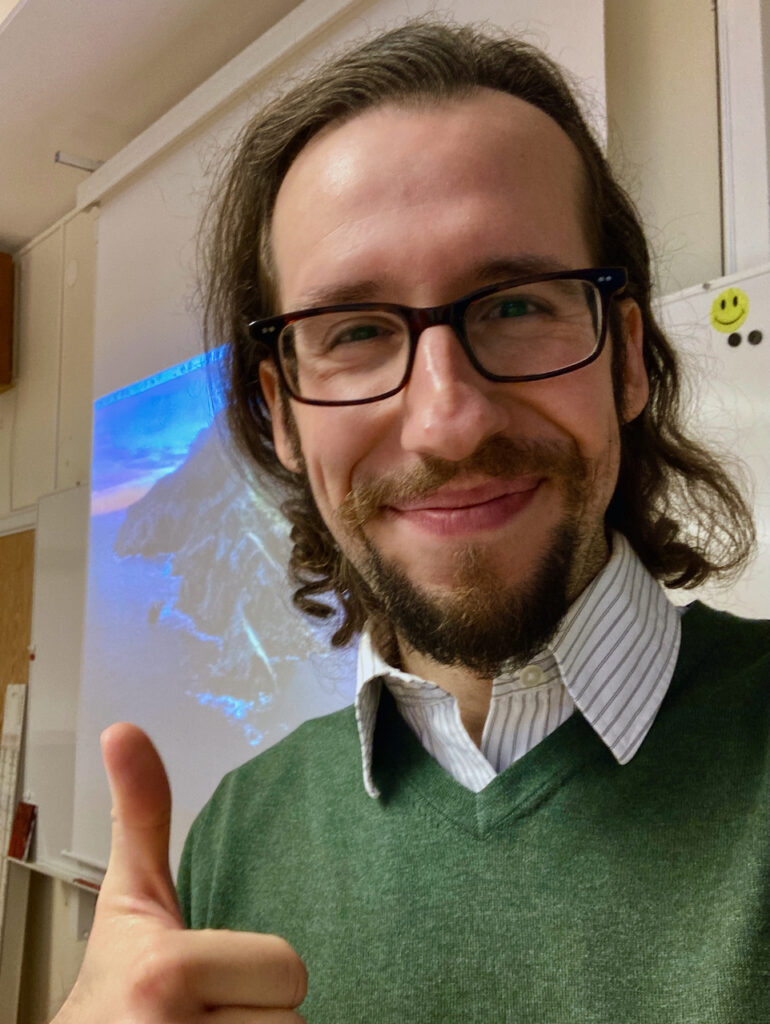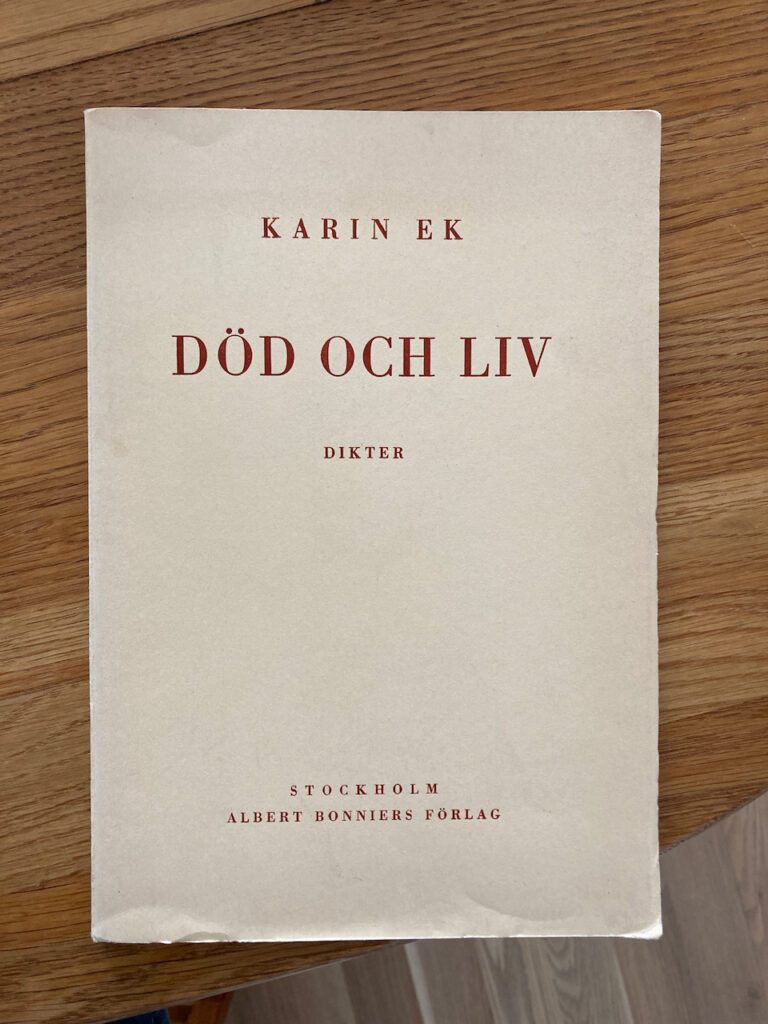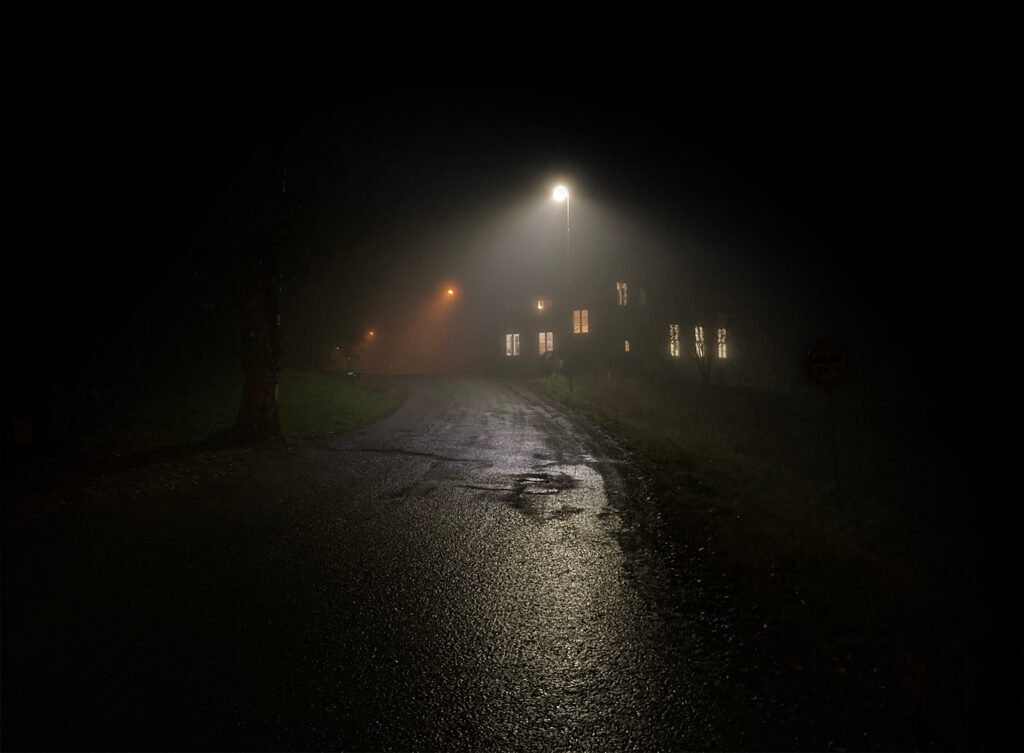This week I am back in Norrbotten, way up in northern Sweden, where I went to college and lived for six years. More than half of Sweden is officially known as the ‘northern’ part, but this truly is the northern part of Sweden. A part of me still feels at home up here, even though I now live some 400 kilometres south in what is still officially known as ‘northern’ Sweden, but actually is the middle of the country.

I teach at two different folk high schools. One close to where I live, in Härnösand, and one up here, in Öjebyn: Framnäs folkhögskola. I quite like both, in different ways and for different reasons. At the folk high school in Härnösand I teach mainly music composition and music history – specifically, the history of Western music. Up here in Öjebyn, I teach the history of computer and video game music. The folk high school here has a two-year specialisation course in music and audio for games that’s run in partnership with the game cluster and incubator Arctic Game Lab.
I have had a deep and enduring had a deep and enduring fascination and love for computer and video games since I first got my hands on a Nintendo Game & Watch as a kid. In fact, one might argue it started even earlier as my parents and their friends have repeatedly testified that even as a very young child I was delighted whenever I got to press a button or flip a switch or something like that, and that triggered some kind of reaction like a sound or animation or a mechanical response. I suppose I had it in me right from the start.
My seminar – the first of a total of five in one school year – was yesterday but I will remain up here for another couple of days, because on Thursday I will perform in Älvsby Church yet another 60-something kilometres further north. It will be my first concert in a many years together with my wonderful accompanist and dear friend Nina Sandell. We got together late this summer and played through dozens of songs, piecing together drafts for possible concert programmes. One of them, themed around All Saints’ Day, life and death, and the dark and dusky moods of autumn is now about to be realised, and I couldn’t be more excited.
The concert is called “Songs about Death and Life”, and very specifically so instead of the more common expression ‘life and death’. Not because we want to be edgy or different, but because the narrative construction of the programme moves from death and into life – both new life, and the life after death. And because this time of year typically is focused much more on death than usual, so it seemed only fitting to give death a more prominent position.
The list of composers featured is a delightful who’s who of mostly Lied and other art song composers from the 19th and 20th century. Among my favourites are several absolutely wonderful, touching and haunting songs by Lars-Erik Larsson and Gunnar de Frumerie, including some rather uncommon ones that I look forward to bringing to light.
Two of the songs Nina and I are going to perform I have also translated myself into Swedish, from German. One is Max Reger’s setting of Bitte um einen seligen Tod, by 16th century poet Nikolaus Herman. The other is Johann Wolfgang von Goethe’s Dämmrung senkte sich von oben by way of Fanny Mendelssohn.

Both songs are quite striking: Mendelssohn’s in her delicate balancing of sweet melodic lines over unexpectedly dramatic chords, Reger’s through his rich and evocative late-Romantic harmonies juxtaposed with the traditional-but-not-quite-sounding hymn melody.

We also have an underlying narrative connecting the songs together, including the poems by Karin Ek which I will also read in between certain songs, further tying the programme together, thematically. It is not an uplifting programme, not even close. But it isn’t supposed to me. Quite on the contrary, we – or at least I – want this concert programme to offer an opportunity to confront the concept of mortality, loss and sorrow in a calm and gentle way. To stay in the emotions that those concepts provoke in us. To, after about an hour of music and contemplation, leave the concert in what I hope will be a kind of cathartic state.
Death is a necessary, essential, non-negotiable part of life. Even if death can be frightening to many of us, it can also be a relief, a saviour, a friend even. And through death, new life will be born. Besides, as the late Swedish author Per Olov Enquist said in a radio programme in 2009: “One day we will die. But all other days we will live.”
